One life lost is too many.
Roughly 1,000 people gathered in Vancouver’s Jack Poole Plaza on April 28 to reflect on lives lost and injuries suffered in workplace incidents for the National Day of Mourning.
Of that crowd, more than 100 people were directly from the International Longshore and Warehouse Union (ILWU) Canada. President Rob Ashton said he has been bringing out hundreds of his members for at least six years.
“It’s a solemn day for us. It’s a day that we remember our dead. It’s a day that we recommit to make our jobs safer so no more lives are loss,” Ashton said in an interview.
“Everybody should be going home from work at the end of the day and they shouldn’t be working with materials that will kill them without the proper safety equipment.”
Last year, 181 workers lost their lives in British Columbia. Seventy-four fatalities occurred due to traumatic injury and 107 due to occupational disease mostly caused by exposure to asbestos.
Ashton said the ILWU started bringing out a large group of people to make a statement.
“It was time to tell our employers that we’re tired of burying our workers and family and this is how we are going to do it,” he said.
The ILWU represents some 7,200 workers throughout the province and is made up of 12 autonomous locals.
“We represent longshore workers, we represent seafarers, we represent recycling people and workers in the Port Authority as well. Every single one of those jobs are incredibly dangerous and every job has a different danger,” Ashton said.
“Tugboats are undermanned, they don’t have enough crew people. They have underweight tugs towing too big of barges. Tugs don’t get inspected for 50 years and that’s what happened on the Ingenika when we lost Charley Cragg and Troy Pearson.”
The tugboat Ingenika sunk in 2021 while pulling a barge during a storm. Twenty-five-year-old Charlie Cragg and 58-year-old Troy Pearson were killed. Transport Canada later fined the tugboat owner, Wainwright Marine Services Ltd., $52,000 for the deaths.
Recently, the Journal of Commerce reported on the death of 25-year-old Patrick Poitras. Suncor Energy Services Inc. and Christina Rivers Construction Ltd. pleaded guilty in having failed to ensure Poitras’ safety and received a combined fine of $745,000. Poitras’ mother called the fines a “joke.”
Ashton said the practice of fining companies for killing employees is at the heart of preventing truly safe workplaces.
“Too often we see government lawyers cutting deals with employers in the background for what amounts to pennies on the dollar,” said Ashton.
“These employers that kill our people have to go to jail for a very long time. Only when they start going to prison will it stop.”
He called on all levels and stripes of government to start standing up for worker safety.
“Whether you’re a Conservative, Liberal or an NDP, you need to be held accountable and you better start prosecuting.”
Speaking at the event, Premier David Eby said workers in B.C. can’t rely on luck to keep them safe and thanked the ILWU directly for their advocacy which has resulted in safety improvements to waterfront jobs.
“We can’t rest until every single person is safe at work and returns home safely, every day,” Eby said.
“We’ll keep working for British Columbians every day, side by side with the advocates who are here today.”
Tracey and Angela Phan’s father suffered a traumatic injury when he inhaled toxic gas at a mushroom farm in 2012. He has been in a coma since then and Tracey said any hope of his recovery ended a long-time ago and called her father a “dead man trapped in a living body.”
The harrowing story of the day Tracey’s father was injured brought visible tears to the eyes of many onlookers at the event as Tracey recounted with anger and emotion the screams of her mother and the failure of accountability for what happened.
“Today, I work as a health and safety facilitator with the BC Federation of Labour’s Health and Safety Centre,” Tracey told the crowd, “I talk to young workers about their rights. I tell them that there are workplaces where their lives are not valuable, employers who will put their safety at risk. I tell them what to do about it, how to refuse unsafe work, how to take action against dangerous employers and how we can stand up for each other if nobody else will.”
“My challenge to you today is to change that landscape. To create laws that uphold justice and tell workers that their lives and safety truly matters. To change the systems that so badly failed my father and my family to truly honour the lives of the people that we are remembering today.”
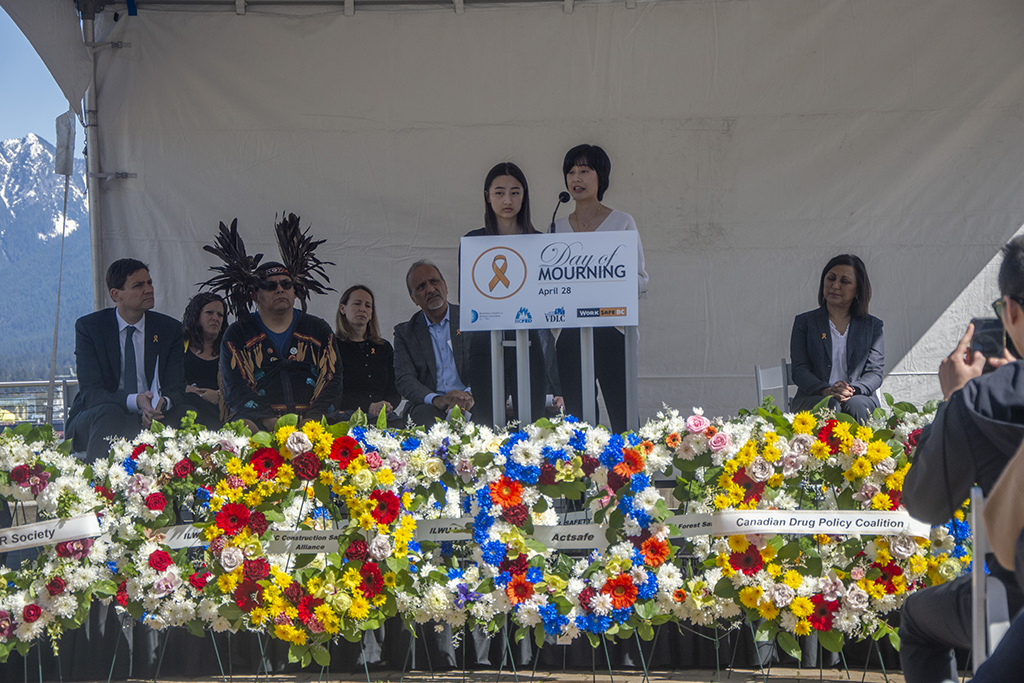
1/5
EVAN SAUNDERS - Angela and Tracey Phan’s father suffered a traumatic injury in 2012 which has left him in a coma for the past 11 years. In an emotionally charged address to the crowd at the National Day of Mourning event in Vancouver, Tracey, now a health and safety facilitator with the BC Federation of Labour, called upon everyone present to change the system that leaves workers dead and fails to support families like her own.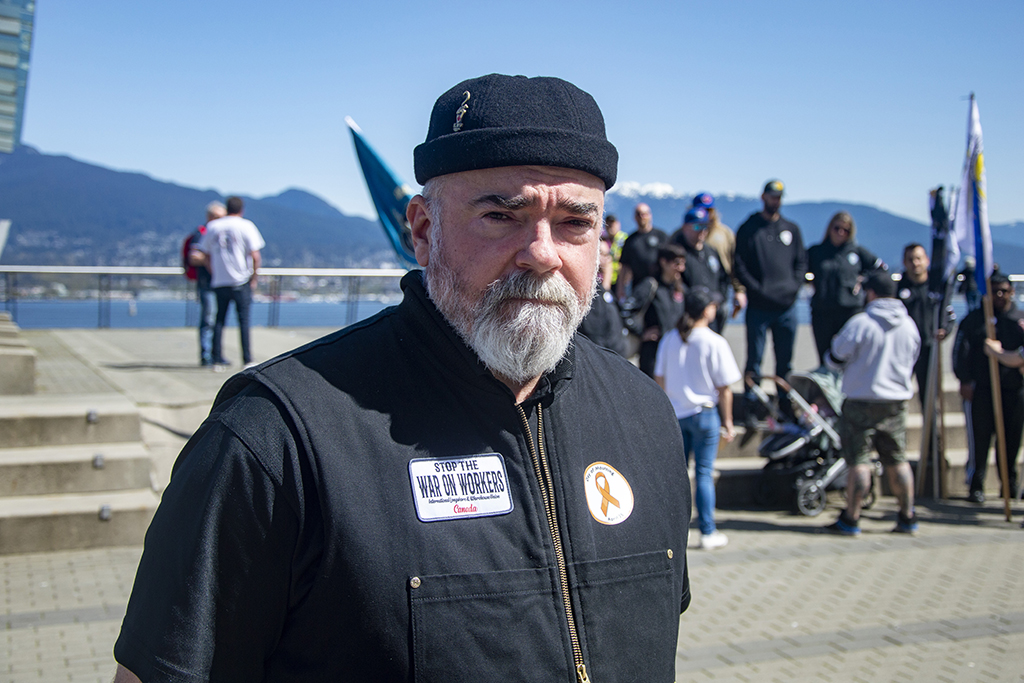
2/5
EVAN SAUNDERS - Rob Ashton, president of the International Longshore and Warehouse Union Canada, says small fines for companies found guilty of worker deaths needs to stop and governments need to start meaningfully prosecuting and possibly jailing employers who flout safety.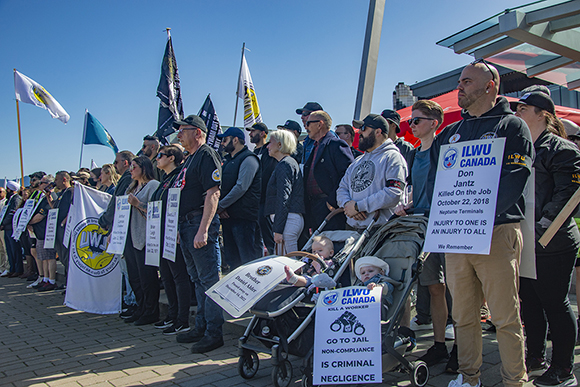
3/5
EVAN SAUNDERS - Family, friends and co-workers of people injured or killed in workplace incidents at the Jack Poole Plaza in Vancouver on April 28 for the National Day of Mourning.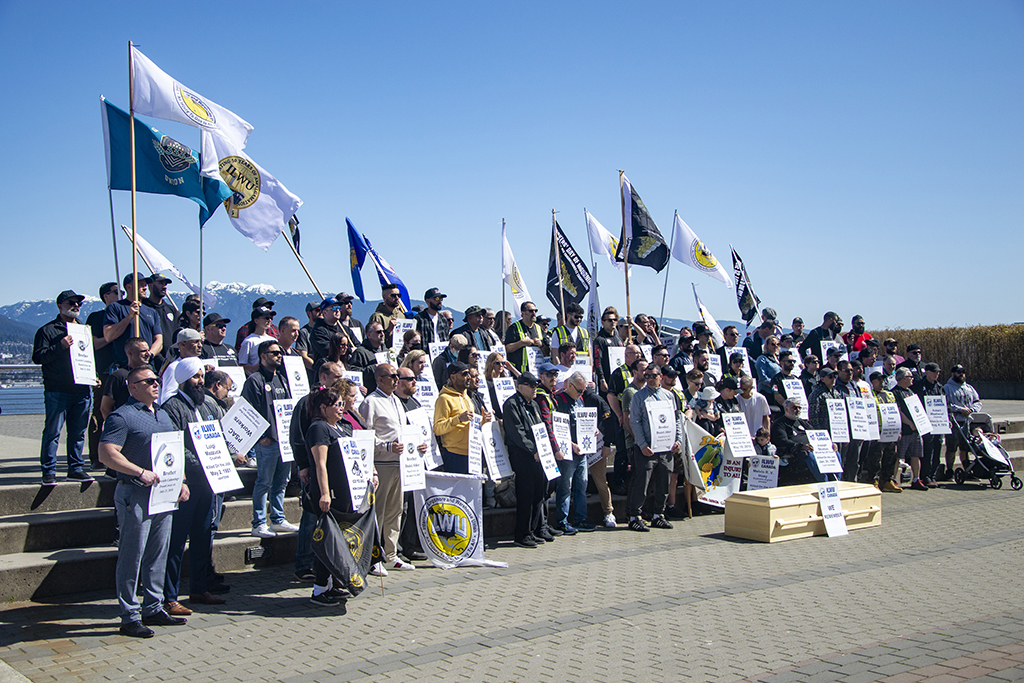
4/5
EVAN SAUNDERS - Some 100 members of the International Longshore and Warehouse Union Canada gather at the Jack Poole Plaza in Vancouver for the National Day of Mourning.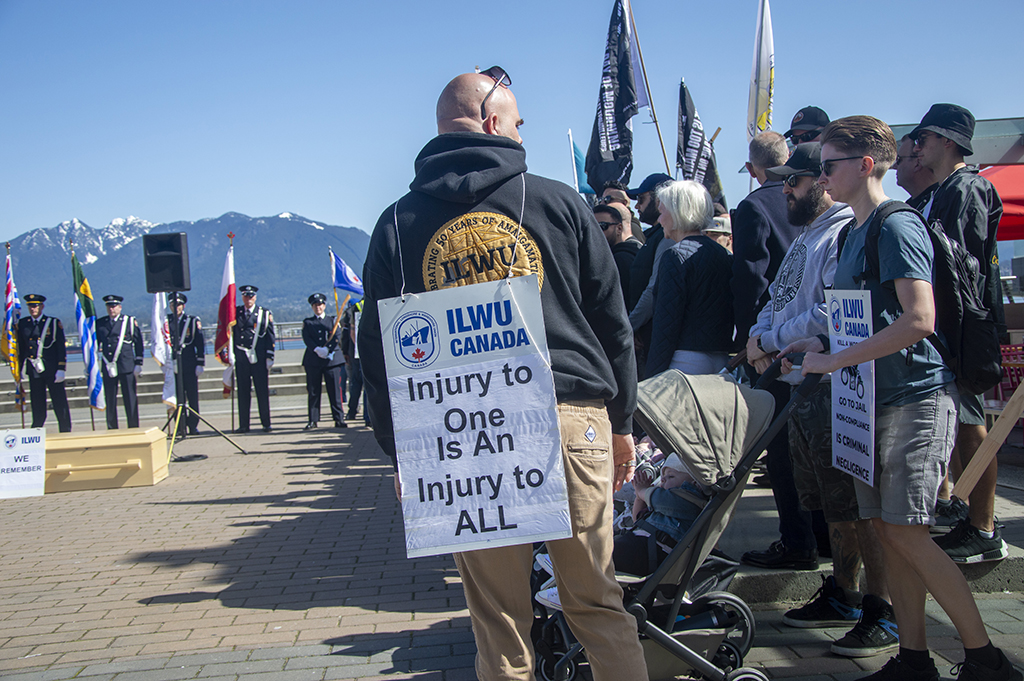


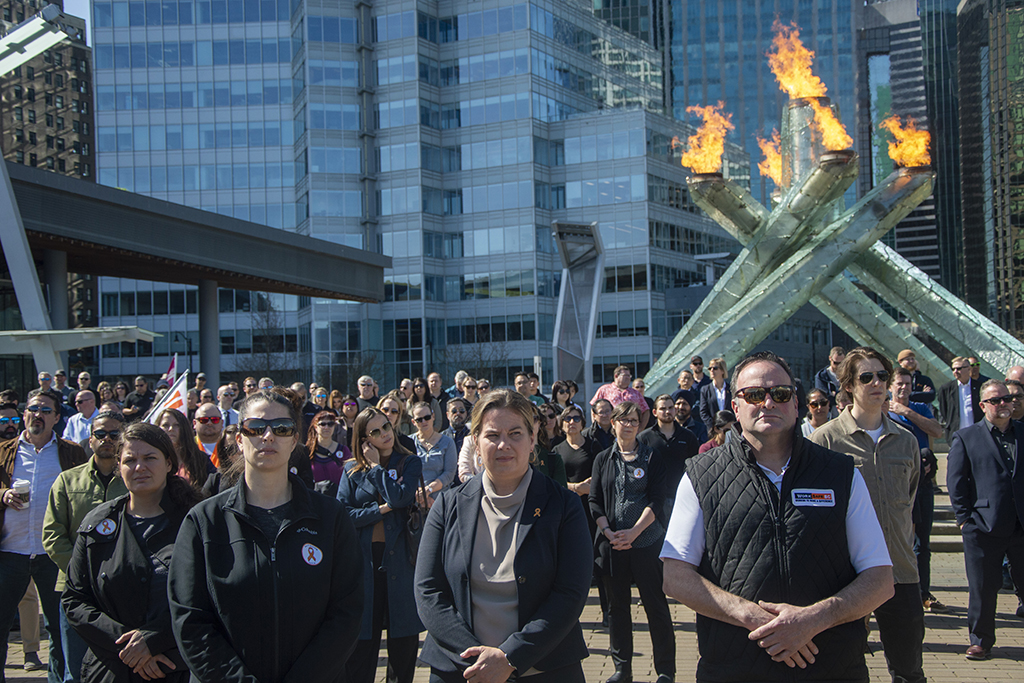
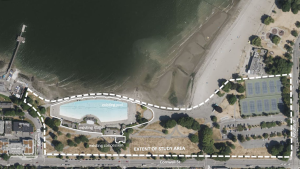





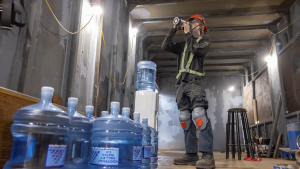

Recent Comments